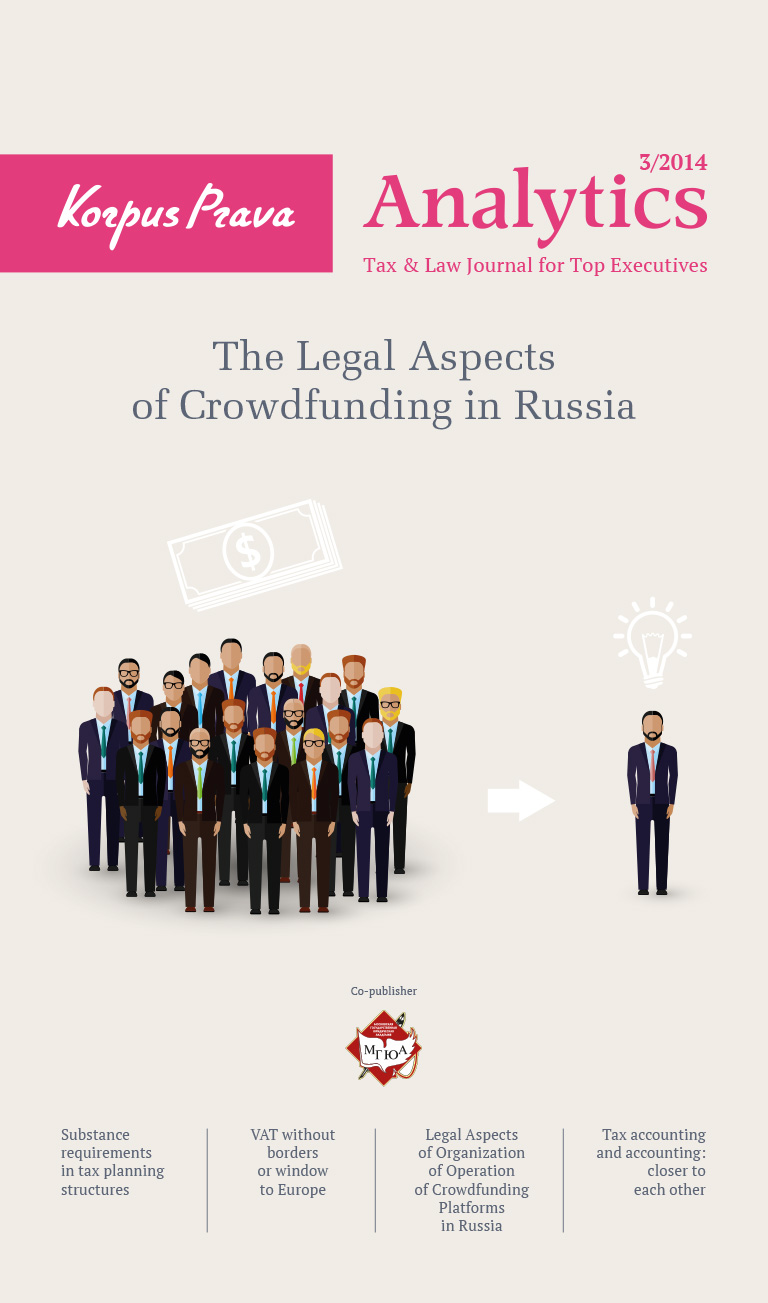- Cyprus Citizenship Scheme for Foreign Investors
- Squeezed But Pleased: Taxation of Passive Income in the European Union
- VAT Without Borders or Window to Europe
- Legal Aspects of Organization of Operation of Crowdfunding Platforms in Russia
- Substance Requirements in Tax Planning Structures
- “Deposit Splitting” of Individuals. Legal Civil and Criminal Aspects
How overseas life assurance can help you in Russia?
Many Russian residents have assets held outside of Russia for a number of legitimate reasons, mainly for financial planning purposes and the need to diversification away from the Russian rubble. The Russian government has become more aware of such assets and also in recent years more hungry to ensure that tax is paid on these assets by residents who are subject to income tax on their world-wide income, especially in view of the effect of reduced government income due to low gas & oil prices.
Following the Amnesty reporting 2015 rules (voluntary declaration by physical person’s assets & bank accounts) and subsequent extension until 30 June 2016 many residents will be thinking about declaring such assets. The amnesty exempts an individual from criminal, administration and tax sanctions on assets declared.
It is important with FATCA and common reporting standards that individuals consider the implications of what they invest in not only in terms of performance, diversity and liquidity but they should also consider taxation. Russia has signed up to the Common Reporting Standard Regime from 2017 ready to commence reporting in 2018 meaning that other signatories will report to the Russian Revenue Service assets held abroad by Russian residents.
In addition, many Russians have accumulated wealth within Russia. The local currency is volatile and Russia is an emerging market in which the peaks and troughs can be extreme.
An overseas life assurance policy may be a suitable asset to hold as a long term investment for a number of reasons. The payment of funds from within a Russian bank to such an overseas policy is a lawful transfer of funds abroad under Russian law. This can be done as a lump-sum investment or regular payment for savings purposes.
It appears an overseas life policy with a small amount of life cover (traditionally 1%) is an allowable asset to be held and typically although investment led such policies are classed as life assurance in the main jurisdictions of Isle of Man, Guernsey and Mauritius.
The overseas jurisdictions mentioned have high levels of regulation and most jurisdictions either offer a policyholder protection scheme or insist that assets are held by an independent custodian.
Another fairly unique feature of such products is that they separate legal ownership and beneficial ownership of the underlying assets. The insurance company owns the underlying investments chosen by the investor which means the assets grow free of taxation in the country where the insurer is based, this is generally known as gross roll up and offers tax-deferral meaning assets should grow more quickly as there is no annual taxation on the insurer. In most countries an insurance policy is also known as non – income producing meaning there is no annual taxation on the interest or dividends within the policy. The policyholder is the beneficial owner of the life policy and therefore will only suffer taxation in Russia when benefits are taken from the policy. In Russia any profits or gains made when taken will generally be subject to taxation at the investment rate of 13%.
Other advantages of life policies include the ability to change the assets within the policy when an individual’s circumstances change. So without changing the underlying structure assets can be switched to suit changing circumstances and requirements. As mentioned in the beginning of the article, an overseas life policy allows for diversification and can allow for many assets to be selected including mutual funds, cash, structured notes and shares on a recognised stock exchange. Assets can also be held in different currencies to enhance diversification and performance.
Virtually all overseas life policies are considered portable which means should an individual move to another jurisdiction, then depending on the new country of residence, most of the benefits described above remain.
Your subscription to our journal will definitely boost the efficiency of your specialists and downsize your expenses for consultants.
The journal is available free of charge in the electronic version.
Free Download

